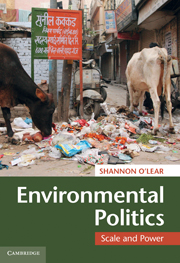6 - Toxins
Published online by Cambridge University Press: 05 June 2012
Summary
Projected percentage change by 2050 in the amount of mercury in the Pacific Ocean: +33
– Harper's Index, August 2009Percentage of fish samples from 291 U.S. streams for a recent study that were found to be contaminated with mercury: 100
– Harper's Index, November 2009Introduction
There is renewed energy to ban aspartame, commercially known as Equal, Nutrasweet, and Canderel, on the basis that it causes cancer. Aspartame is the second most widely used artificial sweetener in the world after saccharin. It was initially approved by the US Food and Drug Administration in 1974, but its approval process is a dramatic story of high-level politics and corporate involvement in the policy-making process. When faced with the ubiquitous pink (saccharin), blue (aspartame), and yellow (Splenda or Sucralose) packets of sweeteners, many people already have a sense that these artificial sweeteners are not good for human consumption … are they right? How would we know?
Another similar but less widely known case of possible toxins intentionally included in our food supply is diacetyl. Just because you have never heard of it does not mean you have not eaten it. It is not required that this chemical be listed on any packaging by name, and even if it were, few people would know about the serious lung disease attributed to inhaling this chemical (Michaels2008). Diacetyl safely (or ominously, depending on your viewpoint) is suggested only by the ingredient “butter flavor” in microwave popcorn.
- Type
- Chapter
- Information
- Environmental PoliticsScale and Power, pp. 145 - 171Publisher: Cambridge University PressPrint publication year: 2010



